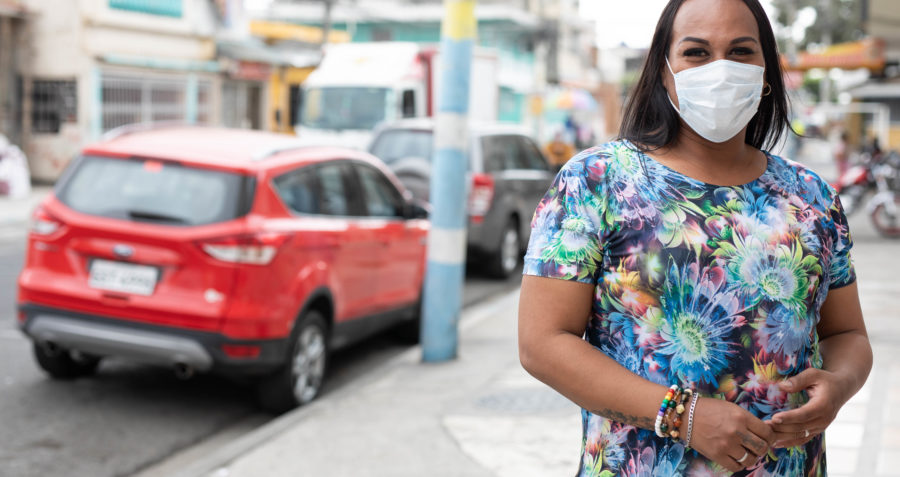Generation Equality: movement building and solidarity to end AIDS
 Frontline AIDS/Keoma Zec 2020
Frontline AIDS/Keoma Zec 2020
COVID-19 threatens to derail the HIV response, but a new agenda on gender equality brings new hope for women and girls affected by HIV.
As we celebrate this year’s International Women’s Day, we stand at a pivotal moment for gender equality, in the run up to the Generation Equality Forum in Mexico City at the end of the month. The forum will launch a worldwide consultation to develop a set of blueprints for gender equality. What does this mean for women and girls most affected by HIV?
Generation Equality is a UN Women-led campaign with a bold agenda to tackle gender injustice and empower women and girls worldwide. The campaign will drive progress in key areas that affect women’s lives such as gender-based violence and economic justice. It’s an exciting and ambitious process, which aims to be truly inclusive, collaborative and led by and for women in their diversity, in partnership with Government, the private sector and philanthropy.
Why is this critical for us and others in the HIV response? Every week nearly 7,000 adolescent girls and women get HIV. Sex workers are 21 times more likely and transgender women 13 times more likely to contract HIV. Gender inequality, including harmful gender and social norms that seek to control women’s bodies and limit their choices, continues to leave cis- and transgender women and girls vulnerable to HIV.
Advancing rights
Let’s track back 25 years to the 4th World Conference on Women in Beijing and the moment when the Platform of Action for women’s rights became among the first to make the links between HIV and gender inequality.
Since then women’s leadership in the HIV response has challenged and changed the shape of the global architecture around HIV and AIDS, by exposing the links between HIV, sexual and reproductive health and rights, and gender-based violence. As women living with HIV, as sex workers, as women who use drugs, as trans women, and as adolescent girls and young women in their diversity, women have demanded a seat at the table. They have demanded the right to access the best available treatment and the right to realise their fertility desires. They have demanded female-centred prevention technologies. They have demanded the right to make their own decisions about their bodies and their lives.
Gender equality and COVID-19
Over the last 12 months COVID-19 has further exposed the risks and vulnerability that women experience in the face of a pandemic – especially those most affected by HIV. Lockdowns and social distancing policies have forced people to live their lives behind closed doors. The pandemic has exacerbated the well-documented burden of unpaid care on women and girls, fuelled an upsurge in domestic violence and threatened livelihoods.
We’ve seen sex workers forced to make difficult choices between staying safe from COVID-19 and earning a living by taking greater risks and increasing their potential exposure to HIV. We’ve seen transgender communities forced out of safe accommodation by the police on the pretext of breaking curfew rules.
COVID-19 has threatened to derail the global HIV response as well as setting women’s rights back by a decade, but we have also witnessed the extraordinary resilience of communities to adapt, innovate and mobilise in the face of this global emergency.
Our commitment to action
Now more than ever we need the Generation Equality action agenda. It will take political will, partnership and ‘power with’ to truly move the dial for women and girls in their diversity.
Through the Frontline AIDS partnership, we will continue to convene, support, and amplify the voices of women who have built the trust of their communities to speak truth to power: to challenge the criminalisation of sex work, same sex relationships, drug use, and abortion; to demand voice and visibility for transgender women and women who use drugs; to claim adolescent girls’ and young women’s sexuality as a source of pleasure and joy, not only frame it as unintended pregnancies and sexual coercion.
We will use this moment to remind the world that AIDS isn’t over and won’t be while women and girls are still being left behind.
Tags
Gender equalityGender-based violenceHIV prevention

